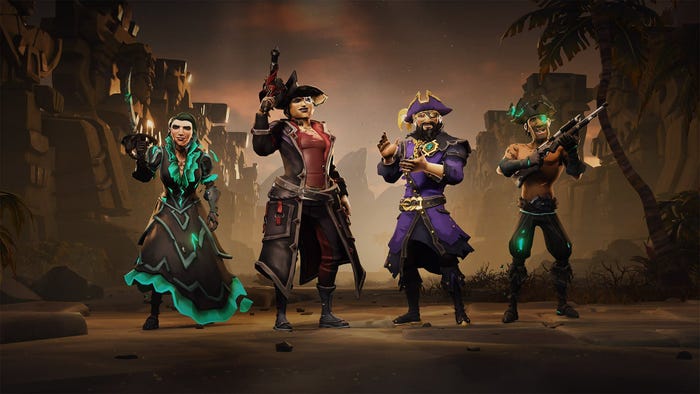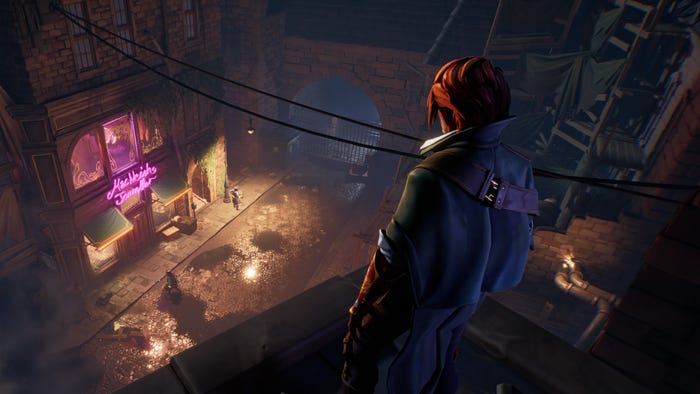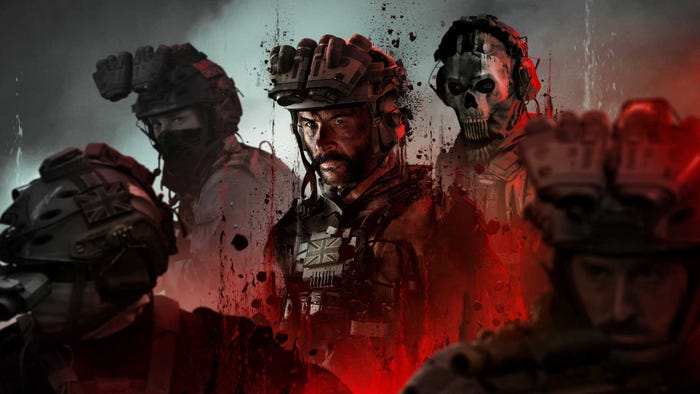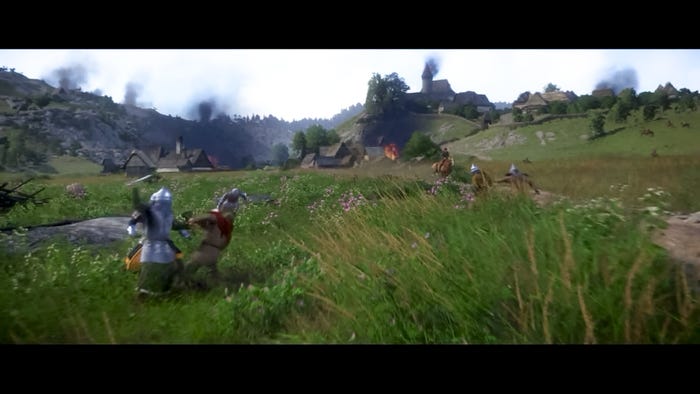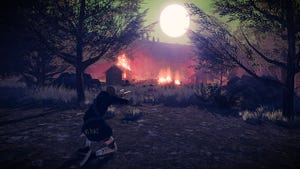As part of a series of "Road to the IGF" interviews with 2011 IGF finalists, Gamasutra speaks with Frictional Games' Thomas Grip about the multi-nominated Amnesia: The Dark Descent.

[As part of a series of "Road to the IGF" interviews with 2011 IGF finalists, Gamasutra speaks with Frictional Games' Thomas Grip about the multi-nominated Amnesia: The Dark Descent.] Founded in 2006 by Thomas Grip and Jens Nilsson, Swedish indie developer Frictional Games first entered the survival horror gaming scene with its Penumbra series. Last year saw the developer really step up its game with the release of Amnesia: The Dark Descent, now nominated for the Seumas McNally Grand Prize, Technical Excellence and Excellence in Audio awards at this year's IGF. Gamasutra talked to Frictional Games Co-Founder Thomas Grip about the development of Amnesia, and what it takes to rouse fear in the mind of a player. What is your background in making games? I am pretty much a hobby games programmer that has succeeded in doing it as a full-time job. The only professional experience I had before starting Frictional Games with Jens four years ago had been two smaller freelance jobs. It's crazy how little my workplace, work times and such have changed since I started out making hobby games fifteen years ago. What development tools did you use to develop Amnesia? We mainly used Visual Studio, Maya and Photoshop to make the game. Added to that are internal tools for level, entity and material editing. We use SVN to do all of our source control and asset sharing. How long did your team work on the game? It took exactly (to the day!) three years from when we started work on the game until we released it. The first year or so was mostly engine and tool development and then we slowly started building the actual game. How did you come up with the concept? The basic concept for the game was something that changed throughout development. It actually started out as a bite-sized action-oriented horror version of Super Mario, but we slowly realized this was a bad idea and changed the direction. Some basic concepts, like the fear of the dark, have been in since the very start. Other things were quite late in development, not being added until the last year or so (the sanity meter for instance). So the final design was something that slowly emerged over the entire development period. A concept / theme that was a major driving force for the latter part of the project was the exploration of human evil. We wanted to make a game where players would feel not only uncomfortable with the environment but also with themselves, and question what sort of things they were capable of. This was a huge factor in shaping the final game's atmosphere. What is the most important element when it comes to rousing fear in the mind of the player? To let the mind do most of the work. I think the thing that sets Amnesia apart from most other horror games is that it starts so slow and generally uneventful. As players are not focused on doing some skill-required activity, they have time to think instead. This leads to players noticing every little sound and finally starting to imagine things. It is almost a kind of sensory deprivation tactic, allowing us to slowly drive the player mad. This is of course a bit risky, but the response so far has been great. It has worked far better than we thought it would. While playing Amnesia, the player is made to feel as though they are constantly in danger, even when they are safe. Was this planned, or did it simply come as a result of the scare factor? That was very much the plan. We found that when players stop seeing the game as a challenge, they can actually become more scared and immersed. This is a bit different from what you normally see in horror games, as classic titles often try to increase the challenge with limited ammo, save-points, etc. But what we have seen is that when players do not approach it as a normal game, but rather an experience, they become much more prone to role-playing. I think this is really interesting and something that we are going to explore more in the future. Added to this is also that, while players might be safe, they can never be sure. And this kind of uncertainty is crucial for building the right atmosphere. As a particularly scary man once said: the oldest and strongest kind of fear is fear of the unknown. That said, this tactic does not work on everyone. Some people are unable to get scared unless they know that it causes some rule-related penalty. I believe some of these people can be won over by a few changes to the game though. For example, things like minimizing the repetition of enemy encounter can further increase fear in people. Were there any elements that you experimented with that just flat out didn't work with your vision? Tons and tons. As I mentioned, Amnesia started out as a very different game and most of the initial features did not fit very well as we changed direction. At the end of the project (last year or so) there was not any time for experimentation, so we just added stuff and hoped it would work. We actually kept tweaking features, like the insanity meter, until a few days before release. So we're very happy that turned out as well as it did. Have you played any of the other IGF finalists? Any games you particularly enjoyed? I really enjoyed The Dream Machine. I liked how they dared to start the game in a slow and mundane way and then slowly build from there. Games normally start out so fast and intense, so this was really nice to see. Speaking of mundane, I love how Dinner Date takes the most boring story ever and makes a very engaging experience of that. I also played Desktop Dungeons a bit and think it is a fantastic concept. It is kind of like a hyper-advanced version of Minesweeper, and way bad for my productivity (I actually had to delete the cursed thing!). What do you think of the current state of the indie scene? I think the most positive trend these days is that small indie companies can actually become successful, and that without any help from a publisher. Ten years ago this just wasn't possible. Being successful back then was being able to do it full time at all. Nowdays you have delveopers with enough money to set up their own funds and the like. That is really great and I think it promises for a bright future. Now that creating small, risky and innovative games can actually lead to viable business, it will hopefully lead more people to get involved. In the end I hope this will help to take the medium in new, exciting directions. [Previous 2011 'Road To The IGF' interviews have covered Markus Persson's Minecraft, The Copenhagen Game Collective's B.U.T.T.O.N., Alexander Bruce's Hazard: The Journey of Life, Nicolai Troshinsky's Loop Raccord and Chris Hecker's Spy Party.]
About the Author(s)
You May Also Like



